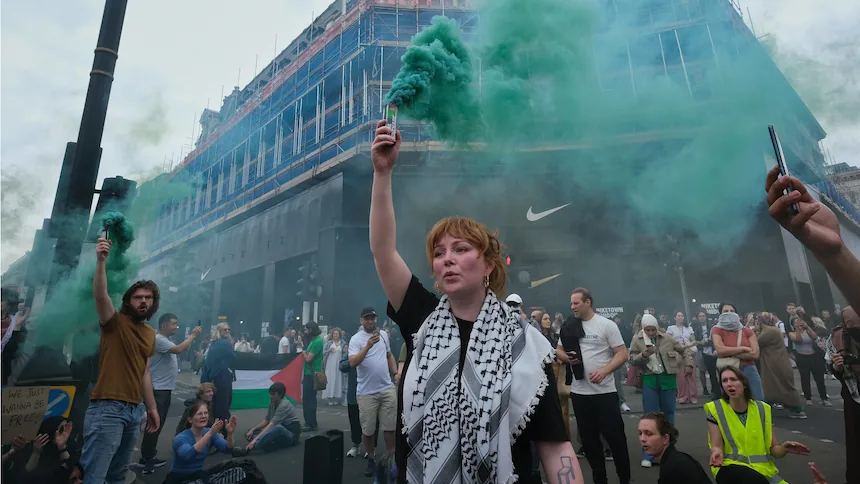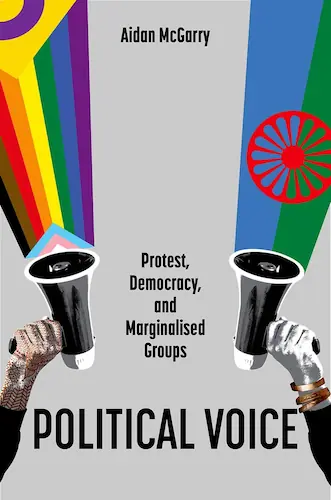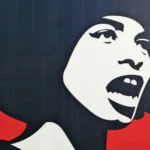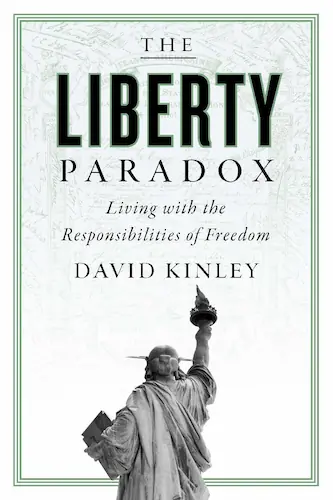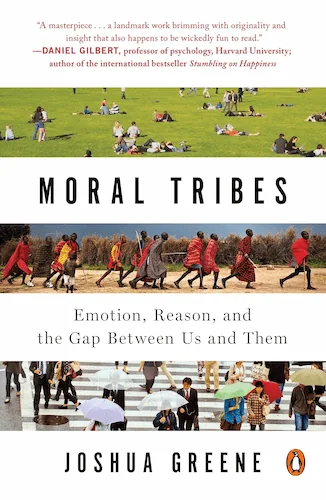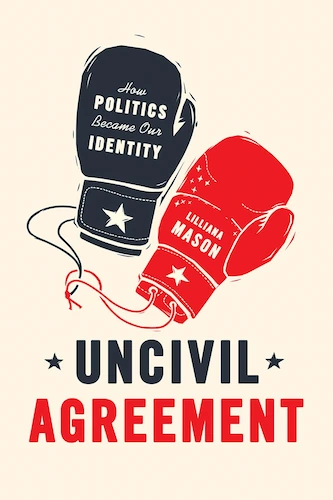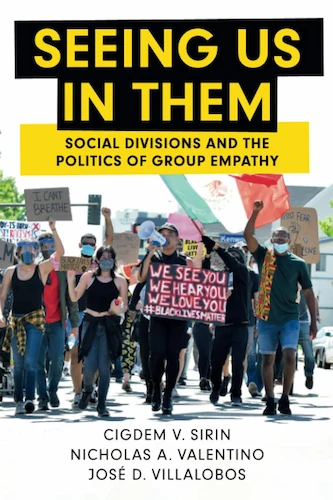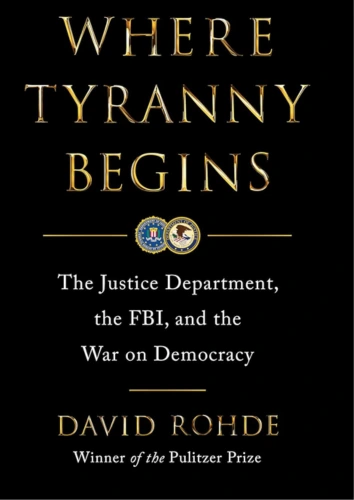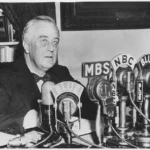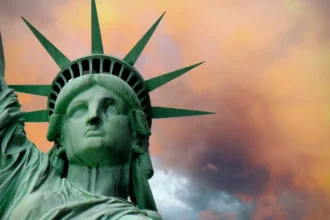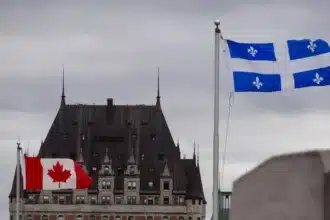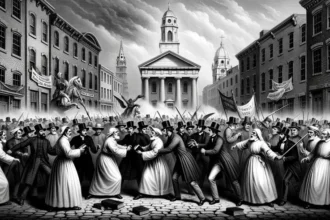Democracy is facing an acute crisis today. Authoritarianism is on the rise all over the world, societies are more polarized and fragmented, and civil liberties are being eroded in states from Italy to Turkey and the USA to Argentina. To compound matters, societies in the global north and south have witnessed increased voter apathy because people do not feel that their voice is heard through democratic institutions.
In essence, people are turning away from democracy because they do not feel they are able to adequately participate in politics or that their interests are represented. This disengagement with political life in turn creates an opportunity for right-wing ideas to take root and flourish with devastating results, especially for those already marginalized such as women, LGBTIQ people, ethnic and religious minorities, migrants, and refugees.
Understanding the relationship between political voice and democracy is crucial if we are to live in a society which is fair, open, and inclusive.
Right-wing populists often claim to be marginalized, ‘cancelled’, and/or silenced. All this whilst occupying the highest political and economic positions in the land, and regularly platformed and amplified by mainstream media and social media. The views of the far-right may be marginal but are certainly on the rise and are primarily motivated by a desire to protect the nation, i.e., the majority identity, from a perceived threat.
‘Make America Great Again!’, which has a long and rich history in the USA, epitomizes this idea. Right-wing populism is built on nativism, a logic which seeks to promote national identity or citizens over against those it deems foreign. Notably, right-wing views that were once considered fringe (e.g. regarding border control and immigration) and were often not spoken publicly twenty years ago are now decidedly mainstream. All over the world, right-wing populist regimes invariably attack minority groups such as migrants, Muslims, Jews, and LGBTIQ, especially trans people seeking to score political points with their electoral base.
The Power of Voice: Speaking Up and Speaking Out
Politics tends to be understood as elections and the various activities of political parties and elected representatives, this is where politics ‘happens’. When most people think of participating in politics, they think of casting a vote every few years. The dominant system of governance, representative democracy, means that in principle, we are having our voice heard or ‘having our say’ when we vote.
My book Political Voice challenges this assumption and argues that understanding the relationship between political voice and democracy is crucial if we are to live in a society which is fair, open, and inclusive. Absolutely crucial to this is our ability to speak up and speak out, to make ourselves heard outside of formal political systems.
Our voice can be expressed in numerous ways depending on the context, including demonstrating, boycotting, striking, occupying a public building, disrupting public transport, wearing certain clothes or colours, graffiti, displaying symbols, slogans or slang, rioting, and every nuanced performative and communicative expression in between.
Truly, political voice covers the spectrum of collection and public action. It can be violent or obedient. It can be dramatic or mundane. At the heart of voice lies human agency, our desire to call attention to, reject, or correct an objectionable state of affairs and seek improvements for ourselves and others.
Whilst voice retains a sonic and material dimension in the sense that it is a sound or noise which others can hear. I am more concerned with the collective manifestation of voice, the gathering of people through protest and social movements to render themselves publicly visible, to call attention to their existence, their experiences and unfair treatment.
Protest and Democracy
Since the 1960s, a huge swathe of progressive legislative, policy change, and attitudinal transformation, has come about because ordinary people, in the form of protest movements, have demanded it. The civil rights movement, environmental movement, anti-war, peace movements, gay liberation, student activism, and women’s movements were some of those groups who radically altered how we think about rights, equality, and justice.
Resistance in the form of public collective action is a fundamental principle for a healthy democratic society.
Suffice to say, such change does not tend to happen because politicians want to extend rights or promote equity for the sake of it.
Protest movements show no signs of fading as the twenty-first century progresses as people continue to challenge governments, regimes, economic structures, austerity, material inequalities as well as advocate for global issues such as food, water, peace, energy, healthcare, and climate change.
A cursory glance at mainstream and social media around the world today reveals that protest movements are thriving, invariably born out of frustration, a sense of injustice and a desire to improve society. Protest is possible because fundamental human rights guarantee our capacity to assemble, to associate, to be visible, and to speak.
So, I would argue that protest signifies the essence of democracy, one that is founded on speaking up and speaking out, when circumstances necessitate. By making ourselves heard, we reveal hidden knowledge, ideas, meaning, positions and experiences. Through this action we disrupt the political status quo and affirm the agency which is supposed to underpin democracy.
Resisting Democratic Erosion
I offer a constructive critique of representative democracy, not with the intention of undermining it, but instead as a call to protect it, by emphasizing how ordinary people make their voice heard outside of formal political structures and opportunities. This is because resistance in the form of public collective action is a fundamental principle for a healthy democratic society.
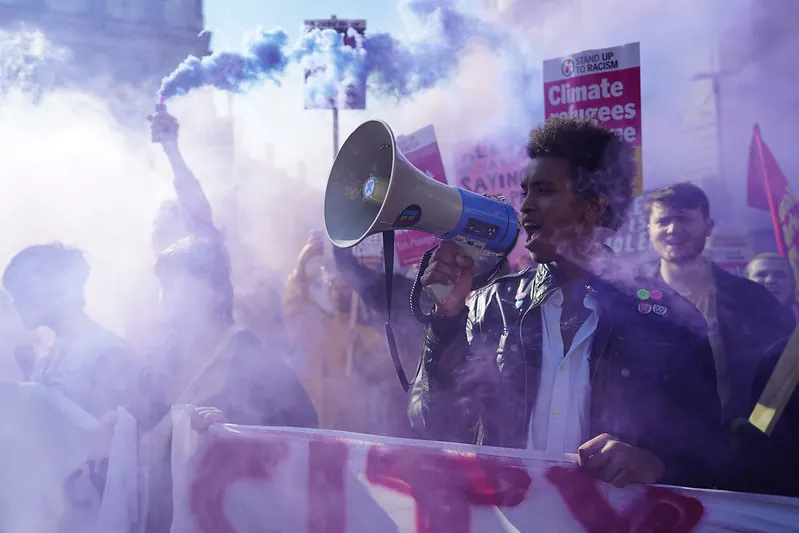
Any attempt to suppress the voice of citizens, especially those already on the margins of society, ought to serve as a warning for creeping authoritarian ambitions. The playbook of the far-right regimes more generally is rather predictable though no less worrying.
Typically, efforts are made to undermine or silence critical voices then coerce or control those institutions which are more likely to foster critical voices, such as independent media in the case of Orban’s Hungary and universities in the case of Trump in the USA. Those living in more authoritarian states or governments will be familiar with such a strategy.
Democratic Exclusion
Our capacity to make our voice heard should not be taken for granted particularly considering that our ability to speak up has been heavily regulated in a range of societies. Philosopher Adriana Cavarero points out that politics has always rejected voice as politically dangerous, destabilising and subversive. To be sure, from the earliest iterations of democracy all voices have been treated with suspicion to the extent that the ability to speak and in what arena has been guarded and strictly delineated.
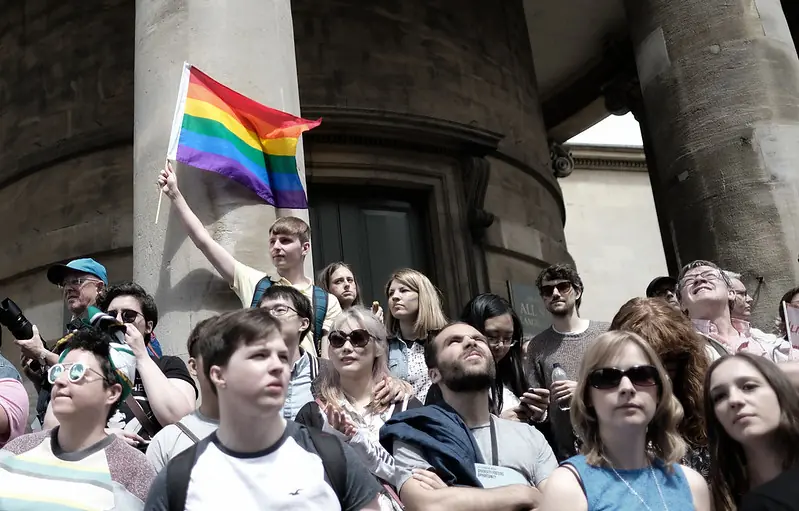
Political philosopher James Tully points out that prior to the eighteenth century, ‘democracy’ was used as a term of abuse to refer to ‘the people’ assembling together and demanding a direct voice in the specific manner in which they were governed. Democracy was judged to be the most appropriate mode of governance for large commercial societies, with representative democracy emerging as the most desired form.
Thomas Paine (1791) in the Rights of Man proclaimed the benefits of representative democracy as capable of ‘embracing and confederating all the various interests and every extent of territory and population’. It is not clear how long it took even the most ardent proponents of representative democracy to realise its shortcomings, assuming that the exclusion of women from voting until the early twentieth century in many parts of the world, did not register as hypocrisy. At the risk of stating the obvious, even from its inception and climb to dominance, democracy has been built on exclusion.
Histories of Silencing
In her book Stigma: The Machinery of Inequality, sociologist Imogen Tyler draws attention to the silencing of historically subjugated people such as women and slaves.
Representative democracy is in crisis partly because it is not listening to or being inclusive of large sections of society.
Both were expected to be quiet and faced punishment if they dared to speak. To ensure subservience, through silent acquiescence, archaic gagging and muzzling contraptions were used on women or slaves who dared to speak up and speak out.
Today, different practices conspire to keep this spirit of muzzling alive with women, trans folx, and ethnic, racial, and religious minorities frequently targeted on social media for making their voice heard and are routinely shouted down, insulted, and threatened with rape and violence. The technologies of subjugation may have changed but the audacity of speaking up provokes a hysterical response from those who still believe that some people should not be heard because they do not deserve a voice.
The Limits of Representation
In Australia, in 2017, a constitutional convention of 250 Aboriginal and Torres Strait Islander leaders articulated the ‘Uluru Statement from the Heart’ to establish a ‘First Nations Voice’ which argued that the status quo had failed them and there was a need for their voices to be heard.
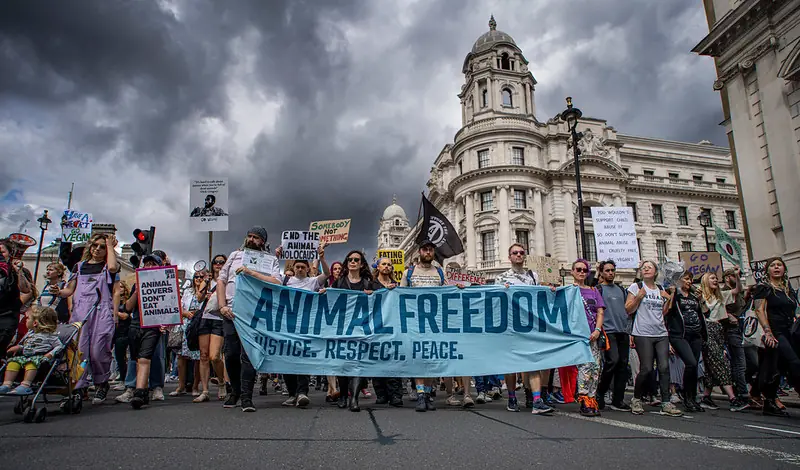
They called for their collective voice to be heard and input into decision making. Representative democracy guarantees participation and representation as Australian citizens but fails to account for the historical discrimination and persecution of indigenous communities.
When community leaders met and discussed their demands, it is significant that they demanded a voice, they did not ask to participate or be represented. It was clear that participation and representation are inadequate as it encourages passivity and adaptation to the existing political order, one that is designed to exclude groups such as Indigenous people.
Explore Books Written by Our Contributors
In October 2023, Australia voted in a referendum on the ‘Indigenous Voice’ which would require an amendment to the constitution recognising Indigenous people and prescribing a body called the Aboriginal and Torres Strait Islander Voice that would be able to represent Aboriginal and Torres Strait Islander people to the government on matters relating to the community. The proposal was rejected by a majority of every state with an overall result of 60% voting no.
Listening and the Limits of Privilege
Media and political commentaries suggest that the majority of Australians voted no because they worried that recognising Indigenous people and agreeing to listen to their voice would lead to an erosion of their own power and control (including over Indigenous Australians).
I am not arguing that people should be heard simply because they are marginalised. But I would argue that those who occupy a privileged position in society by virtue of their gender, class, ethnicity, nationality, religion, ability, age, wealth, or sexuality do need to listen more, specifically to those voices which are often silenced or ignored.
This is beneficial to those in privileged positions as it affords the opportunity to reflect and understand one’s own position in having the capacity to speak and to be heard but also benefits society more broadly by encouraging the expression of critical voices which may help solve common problems.
Representative democracy is in crisis partly because it is not listening to or being inclusive of large sections of society. It is a system of majority-rule. If the centuries-long global surge towards democracy is now in retreat, listening to the voice of marginalised groups can reinvigorate the flagging democracy project, supposing, of course, that we consider the democratic election of authoritarian leaders as a worrying development.
Voice plays a pivotal role in society and reinforces the need for individual and collective agency, this is the essence of democracy and is worth fighting for.


